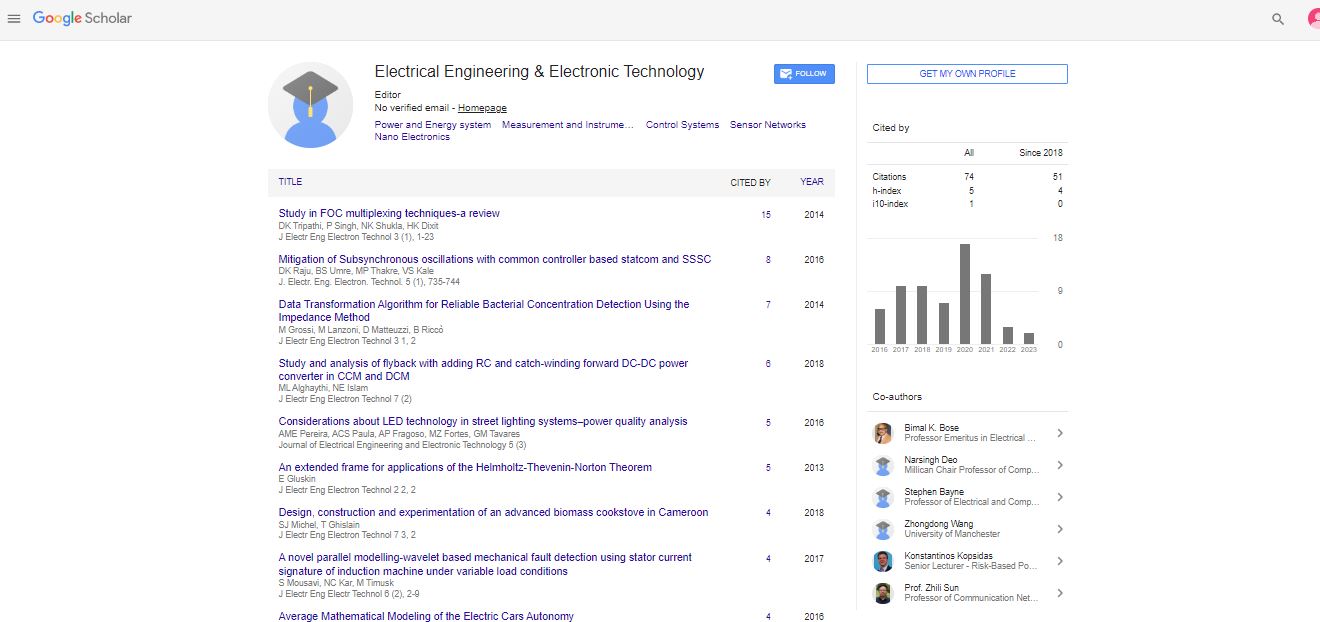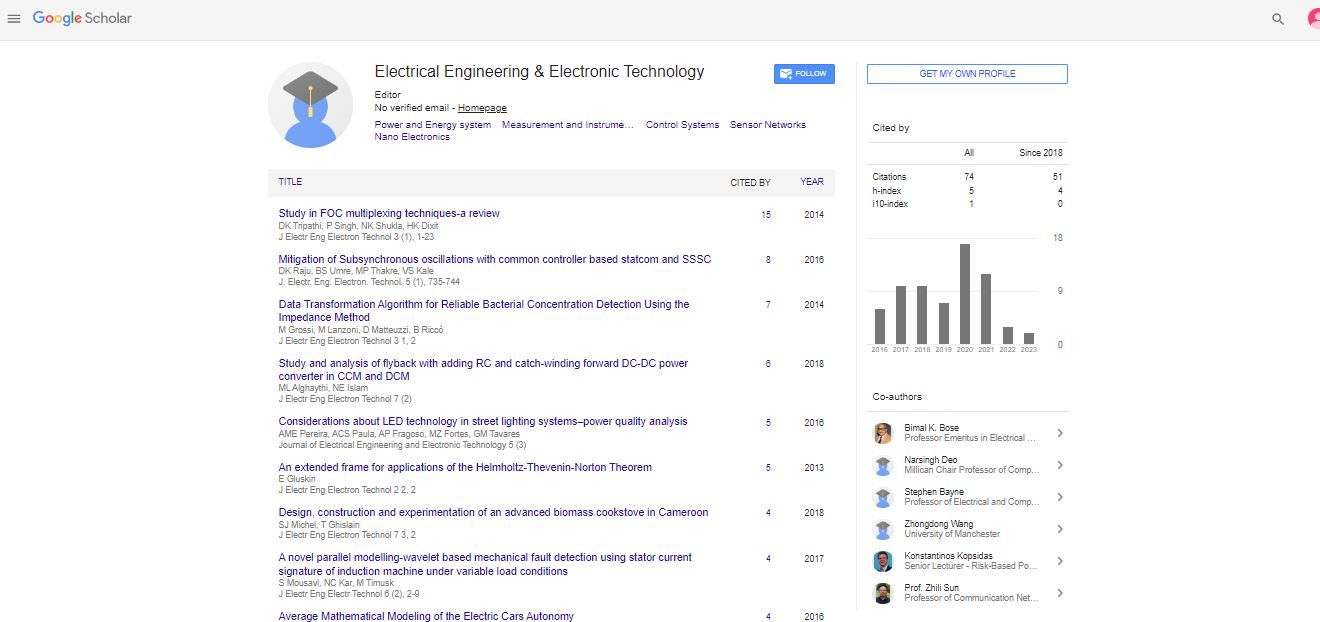Development of enzyme, antibody and MIP based assays for the rapid detection of biogenic amines
Leena Mattsson, Denise Scheofbeck, Sara Doppler, Ursula Sauer and Claudia Preininger
Austrian Institute of Technology, Austria
: J Electr Eng Electron Technol
Abstract
Recent trends in food safety promote the use of biogenic amines as markers for food quality and process hygiene. Biogenic amines are naturally occurring substances especially in fish and fermented food due to bacterial activity, and are mainly produced during storage or processing. Hence, there is a need for a rapid, simple and low-cost test system for routine use. We demonstrate various approaches for detection of biogenic amines, starting with histamine: Immunoassay on a microarray format, biomimetic recognition and enzymatic detection. Competitive immunoassay on a microarray was established by immobilizing hapten-protein conjugates on a reactive biochip. From various conjugation strategies (carbodiimide, glutaraldehyde crosslinking and coupling to oxidized glycoproteins or using microbial transglutaminase) the carbodiimide chemistry was the most reproducible and stable. The dynamic range of the assay was set to be around the defect action level of histamine (50 µg.mL1 ). Microarray format will enable multiplexing with other biogenic amines such as putrescine, tyramine and spermine. Diamine-oxidase oxidizes biogenic amines consuming oxygen and producing ammonia and peroxide. The amount of peroxide was measured colorimetrically using HRP with chromogenic substrates. Histamine binding Molecularly Imprinted Polymers (MIPs) were synthesized by precipitation polymerization. The binding occurred in aqueous solution and was detected using spectrophotometric, gravimetric and fluorescence detection. The binding properties and the size of MIPs were controlled with the change of functional monomers (as methacrylic and acrylic acid) and solvent volume. The different approaches were studied in terms of stability and reproducibility, as well as their applicability for rapid food quality monitoring.
Biography
Leena Mattsson graduated as a Master of Science in Technology from University of Turku, Finland, in 2013 with the focus of in vitro diagnostics and label technologies. Since February 2014, she has been working in Austrian Institute of Technology on her PhD thesis in the field of biosensors and food analytics.
 Spanish
Spanish  Chinese
Chinese  Russian
Russian  German
German  French
French  Japanese
Japanese  Portuguese
Portuguese  Hindi
Hindi 
